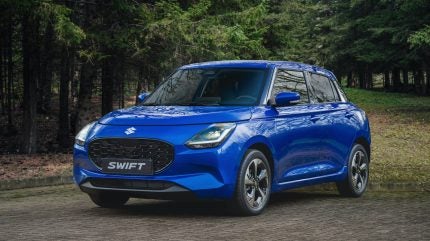
Suzuki has suspended production of most of its Swift car models at its Japanese plants due to a shortage of parts linked to China’s rare-earth export restrictions, according to a Nikkei business daily report.
Reports say the suspension of production began on May 26 and is set to continue until June 6 due to a shortage of key components. The move is reportedly linked to delays in parts procurement caused by slow Chinese export licence approvals.

Discover B2B Marketing That Performs
Combine business intelligence and editorial excellence to reach engaged professionals across 36 leading media platforms.
China’s rare-earth export curbs risk auto production – report
China accounts for over two thirds of the world’s rare-earth metal production and an even higher percentage of rare-earth magnet manufacturing. Beijing has slowed the issue of export licences since imposing new controls in April. The tightening of export licences was in response to US President Donald Trump’s newly impose tariffs on imported Chinese goods.
Rare-earth elements and magnets are essential for the electric motors used in vital components in various automotive applications, from windshield-wiper motors to anti-lock braking sensors and motors for electrified vehicles.
Vehicle makers and suppliers around the world also stand to be impacted by the disruption to supply chains.
Europe’s automotive components suppliers’ association, CLEPA, also warned that the European automotive supply industry is ‘already experiencing significant disruption due to China’s recent export restrictions on rare-earth elements and magnets’. It said the restrictions have led to the shutdown of ‘several production lines and plants across Europe, with further impacts expected in the coming weeks as inventories deplete’.
CLEPA called for ‘constructive China-EU cooperation to ensure stable and resilient supply chains for the global automotive sector’.
The trade association pointed out that the affected components are critical to both combustion engine and electric vehicles, highlighting the wide-reaching consequences of the measures.
It said that since early April, hundreds of export license applications have been submitted to Chinese authorities, yet only approximately one-quarter appear to have been approved.
It added that procedures are opaque and inconsistent across provinces, with some licenses denied on procedural grounds and others requiring disclosure of IP-sensitive information.
“With a deeply intertwined global supply chain, China’s export restrictions are already shutting down production in Europe’s supplier sector,” said Benjamin Krieger, Secretary General of CLEPA. “We urgently call on both the EU and Chinese authorities to engage in a constructive dialogue to ensure the licensing process is transparent, proportionate, and aligned with international norms.”
CLEPA also noted that Chinese suppliers of permanent magnets rely on their European customers just as much as European manufacturers depend on Chinese materials. It also warned that sustained disruptions will reinforce ongoing efforts in Europe to diversify sourcing and invest in the development of rare earth-free electric motors.
However, it added that such measures ‘offer no short-term solutions and cannot address the acute risks currently facing supply chains’. Moreover, they also ‘threaten automotive production and thousands of jobs in the European Union’.






